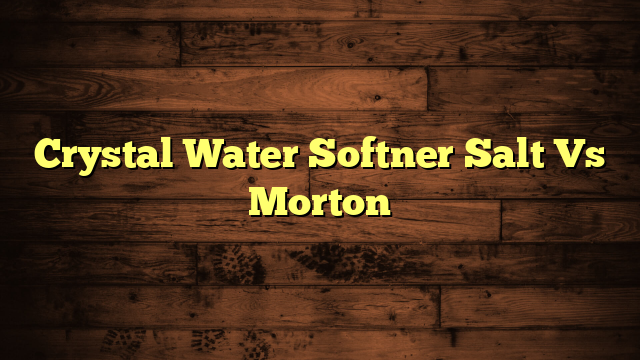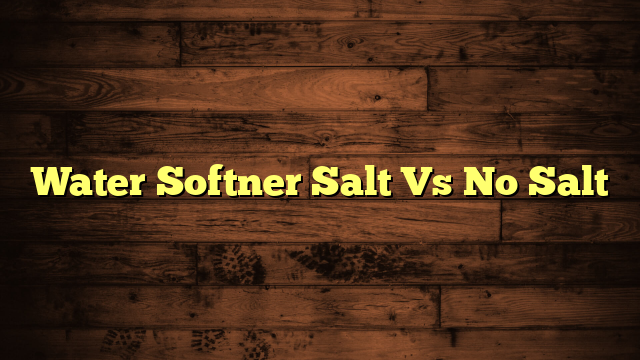What Water Softner Salt to Use for Hotels?
You might think that all water softener salts are created equal, but the reality is more nuanced than that. Each type of salt can greatly impact the efficiency and cost-effectiveness of your hotel's water softening system. As you consider your options, you'll need to weigh factors like purity, environmental impact, and cost. What might be the best choice for your specific needs, and how could it affect your operations? The answer isn't straightforward, and understanding the differences could save you time and money in the long run.
Key Takeaways
- Sodium Chloride is the most common and cost-effective choice for water softeners in hotels, effectively enhancing water quality.
- Evaporated Salt offers the highest purity and is ideal for high-demand environments, though it is the most expensive option.
- Solar Salt is a good alternative derived from seawater, known for its purity and effective dissolution properties.
- Potassium Chloride serves as an eco-friendly alternative to sodium-based salts but may be less cost-efficient for hotels.
- Regular monitoring and bulk purchasing of salt can lead to significant cost savings and improved system efficiency in hotel operations.
Importance of Water Softener Salt
Water softener salt plays an essential role in maintaining the efficiency of water softening systems, especially in hotels where consistent water quality is imperative. You can't underestimate the importance of softening hard water to prevent mineral buildup that can damage plumbing and appliances.
When you use softener salt, you facilitate the ion exchange process, where sodium ions replace calcium and magnesium ions in hard water. This process effectively reduces scale formation, ensuring that your hotel's plumbing systems remain functional and efficient.
Moreover, softening water enhances the overall guest experience. By providing softer water, you improve the effectiveness of soaps and detergents, leading to better cleaning results in laundry and dishwashing. Guests will notice the difference in their showers, experiencing softer skin and hair, which can considerably impact their satisfaction and likelihood of return.
Regular monitoring of salt levels in your softening systems is essential. If you let these levels drop, you risk compromising hotel water quality, which could lead to guest complaints and increased maintenance costs.
Types of Water Softener Salt
When selecting water softener salt for your hotel, you have three main types to evaluate: rock salt, solar salt, and evaporated salt.
Rock salt is the least expensive option, consisting mainly of sodium chloride, but it often contains impurities that can affect water quality. This can lead to more frequent maintenance of your softening system.
Solar salt, derived from evaporating seawater, is purer than rock salt and has fewer impurities. It dissolves well and can enhance the efficiency of your softening system, making it a popular choice among hotels that prioritize water quality.
Evaporated salt, produced through a more refined process, contains the highest purity levels, ensuring peak performance. It's more effective in softening water and works well in high-demand environments like hotels. However, it's also the most expensive option.
If you're considering salt alternatives, there are potassium chloride options available. While they can soften water effectively, they may not be as cost-efficient as sodium-based salts.
Choosing the right type of water softener salt is essential for maintaining your hotel's water quality and operational efficiency.
Sodium-Based Salt Options
When considering sodium-based salt options for your hotel's water softening system, it's crucial to understand the various types available.
Each type offers distinct benefits that can enhance water quality while also impacting your operational costs.
Types of Sodium Salt
Sodium salts play an essential role in the water softening process, particularly for hotels that aim to provide guests with high-quality amenities. Among the various types of sodium salts, sodium chloride is the most commonly used option. It effectively removes hardness minerals from water, ensuring that your facilities don't suffer from the negative effects of hard water.
However, there are several salt alternatives you might consider, depending on your hotel's specific needs. Here's a quick comparison of the options:
| Type of Salt | Description |
|---|---|
| Sodium Chloride | The most common and cost-effective choice for water softeners. |
| Potassium Chloride | A good alternative for those looking to reduce sodium intake. |
| Solar Salt | Evaporated salt that's more natural and free from impurities. |
| Rock Salt | A less refined option, often less expensive but may contain impurities. |
Choosing the right sodium salt can enhance your water softening system's efficiency. Each type has its advantages and fit depending on your hotel's operational goals and guest preferences. Make sure to evaluate these options thoroughly before making a decision.
Benefits of Sodium-Based
Selecting the right sodium salt not only impacts the efficiency of your water softening system but also brings several benefits that can enhance your hotel's overall guest experience.
Sodium-based salts are renowned for their effectiveness in improving softening efficiency. They work by exchanging sodium ions with hardness minerals, such as calcium and magnesium, ensuring that your water is free from scale buildup.
One of the key sodium benefits is the prolonged lifespan of your plumbing and appliances. By reducing mineral deposits, you minimize maintenance costs and the risk of breakdowns. This proves essential in a hotel environment where operational reliability is paramount.
Additionally, using sodium-based salt contributes to better water quality. Guests will notice softer water, which leads to improved lathering of soaps and shampoos, enhancing their overall satisfaction. Softer water also results in cleaner laundry, as it helps detergents perform more effectively.
Furthermore, sodium-based options are often more readily available and easier to handle than other types of salt.
For these reasons, choosing sodium-based salt for your water softener not only supports system performance but also elevates the guest experience in your hotel.
#
Cost Considerations for Hotels
Cost is a critical factor for hotels considering sodium-based salt options for their water softening systems. When evaluating these options, you should analyze bulk salt pricing, as purchasing in larger quantities often results in significant savings.
By securing a reliable supplier, you can negotiate better rates and reduce your overall operational costs.
It's essential to factor in the long-term expenses associated with sodium-based salts, including maintenance and replacement of your water softening equipment. Sodium chloride is generally more cost-effective compared to other types of salts, making it a popular choice among hotels.
However, be aware of fluctuations in market prices that can impact your budgeting.
In addition, consider the environmental implications of sodium-based salts. While they may be cheaper initially, their impact on water quality and the surrounding ecosystem can lead to additional costs down the line, such as regulatory compliance or potential fines.
Potassium-Based Salt Options
When considering water softener salt options for hotels, potassium-based salts present a viable alternative to traditional sodium chloride. These potassium alternatives offer several potassium benefits, including reduced sodium content in the water and a lesser environmental impact. This is particularly important for hotels looking to provide high-quality water while adhering to health and sustainability standards.
Here's a comparison of some common potassium-based salt options:
| Salt Type | Key Features |
|---|---|
| Potassium Chloride | Reduces sodium levels, eco-friendly |
| Potassium Carbonate | Helps balance pH, softens water |
| Potassium Citrate | Improves taste, minimizes scale buildup |
| Potassium Sulfate | Enhances water quality, less corrosive |
Choosing the Right Salt
Understanding the specific needs of your hotel's water system is vital for choosing the right salt. First, assess the water hardness in your area, as this will determine the type of salt you'll need. If your water has high hardness levels, traditional sodium chloride may be more effective.
However, if you prefer a more environmentally friendly option, think about salt alternatives like potassium chloride, which can soften water without the adverse effects of sodium.
Next, evaluate the specific requirements of your water softener. Some systems work better with certain types of salt, so refer to the manufacturer's guidelines. If your hotel has multiple softening systems, you'll need to confirm you're using compatible salt for each.
It's also important to take into account the frequency of salt replenishment and the size of your salt storage. High-capacity softeners may require larger bags or bulk options, while smaller systems can use standard-sized bags.
## Cost Considerations for Hotels
When budgeting for water softener salt expenses, it's essential to take into account both immediate costs and long-term financial benefits.
Investing in high-quality salt can lead to reduced maintenance and operational costs over time.
Moreover, purchasing in bulk often yields significant discounts, maximizing your budget efficiency.
Budgeting for Salt Expenses
Budgeting for salt expenses in hotels requires careful consideration of both direct and indirect costs associated with water softening systems. First, you need to assess the volume of water your hotel uses daily, as this directly impacts the amount of salt needed for softening.
Calculate your monthly salt requirements based on this usage to establish a baseline for your salt budgeting.
Next, consider the price fluctuations of salt. Different types of salt, such as solar or rock salt, may vary greatly in cost. Incorporating these variations into your expense management plan guarantees you're prepared for any potential increases in your salt expenditure.
Don't forget about indirect costs, like maintenance and the potential for equipment wear and tear. Regular maintenance can mitigate long-term expenses associated with equipment failure, so factor that into your budget.
Finally, keep an eye on supplier contracts and explore bulk purchasing options. This can lead to cost savings and more predictable budgeting outcomes.
Long-Term Financial Benefits
Investing in water softeners not only enhances guest satisfaction but also delivers significant long-term financial benefits for hotels. One of the primary advantages is the cost savings associated with reduced maintenance for plumbing systems and appliances.
Hard water can lead to mineral buildup, causing wear and tear on pipes and fixtures, which results in costly repairs. By utilizing water softeners, you can minimize these expenses, ensuring your systems operate efficiently over time.
Additionally, softened water improves the effectiveness of cleaning products and laundry services. Hotels often face high operational costs in these areas, but with soft water, you'll notice a decrease in detergent usage and enhanced results, further contributing to your cost savings.
Moreover, investing in water softeners can extend the lifespan of water-dependent appliances like dishwashers and washing machines.
Bulk Purchase Discounts
Hotels can considerably reduce costs by taking advantage of bulk purchase discounts for water softener salt. By implementing effective bulk purchase strategies, you can secure significant savings that directly impact your bottom line. When you buy in larger quantities, suppliers often offer lower prices per unit, which can lead to substantial reductions in your overall salt expenses.
To maximize these savings, consider developing strong negotiation tactics. Build relationships with suppliers and communicate your purchasing needs clearly. Request quotes from multiple vendors to compare pricing structures, and don't hesitate to ask for additional discounts based on your volume.
Establishing long-term contracts with favorable terms can also enhance your cost efficiency.
Keep in mind the importance of forecasting your salt requirements accurately. This helps you avoid over-purchasing or running out of stock, both of which can negate the savings from bulk buying.
By strategically planning your orders and maintaining consistent communication with suppliers, you guarantee that your hotel benefits from the best possible pricing on water softener salt.
Ultimately, leveraging bulk purchase discounts not only reduces costs but also streamlines your operations, allowing you to focus on providing an exceptional guest experience.
Environmental Impact of Salt
Salt plays an essential role in water softening processes, but its environmental impact can be significant. When you use traditional salt, particularly sodium chloride, it can lead to increased salinity in local water sources. This elevated salinity affects aquatic life and can alter ecosystems, leading to long-term environmental degradation.
As a hotel manager, it's vital to take into account more sustainable options. Salt alternatives, such as potassium chloride or citric acid, can mitigate these negative effects while still providing effective water softening. These alternatives often have a lower ecological footprint and help maintain the balance of local ecosystems.
Moreover, the disposal of brine waste from water softeners can pose challenges. This waste can contaminate soil and groundwater, exacerbating environmental issues. By opting for environmentally sustainable practices, you not only reduce your hotel's ecological impact but also align with growing consumer preferences for sustainability.
Incorporating salt alternatives into your water softening regimen is a proactive step. It demonstrates your commitment to environmental responsibility and can enhance your hotel's reputation among eco-conscious guests.
Making informed choices about water softener salt is vital for both your operations and the planet.
Maintenance Tips for Water Softeners
Maintaining your water softener is essential for guaranteeing its efficiency and longevity. Start with regular inspections to check for signs of wear, leaks, or salt bridging. This proactive approach allows you to identify issues before they escalate, saving you time and money.
Check the brine tank regularly and verify it's filled with the appropriate salt type. Depending on your system, you might opt for solar salt or evaporated salt, as each has different solubility rates.
Monitor the resin beads in your softener; if they're discolored or coated with debris, it's time for a resin cleaning or replacement.
Don't forget to clean the injector and the screen filter, as a clogged injector can hinder the softening process. You should also test the water hardness periodically to verify your system is functioning correctly.
Lastly, keep an eye on the settings and regenerate your system at the recommended intervals. Regular water softener maintenance not only prolongs the life of your equipment but also assures consistent water quality throughout your hotel.
Frequently Asked Questions
Can Using the Wrong Salt Damage the Water Softener?
Using the wrong salt types can indeed damage your water softener. It may lead to maintenance issues, like clogs or resin degradation. Always choose the appropriate salt to guarantee peak performance and longevity of your system.
How Often Should Hotels Refill Water Softener Salt?
Imagine a garden thriving with care; similarly, your water softener needs attention. Stick to a maintenance schedule and refill salt every 4 to 6 weeks, adjusting frequency based on water usage and hardness for ideal performance.
What Happens if Salt Runs Out in the System?
If salt runs out in the system, you'll face hard water issues, leading to scale buildup and decreased efficiency. Regular salt replenishment is essential for ideal system maintenance, ensuring water quality and appliance longevity.
Are There Alternatives to Traditional Salt for Water Softening?
Think of water softening as a dance. Instead of traditional salt, you can use potassium chloride or solar salt. Both options effectively reduce hardness while offering different benefits, ensuring your water stays smooth and manageable.
How Can Hotels Test Water Hardness Levels?
To test water hardness levels, you can use water testing kits designed for hardness measurement. These kits provide accurate results, helping you maintain ideal water quality and ensuring your hotel's plumbing and appliances function efficiently.
Conclusion
To sum up, selecting the right water softener salt for your hotel isn't just about cost; it can greatly impact your water quality and operational efficiency. While sodium chloride is the most common choice, considering factors like purity and environmental impact can lead to better long-term benefits. Remember, a well-maintained water softener not only enhances guest satisfaction but also prolongs the lifespan of your plumbing and appliances, proving that investing in quality salt is essential for success.







